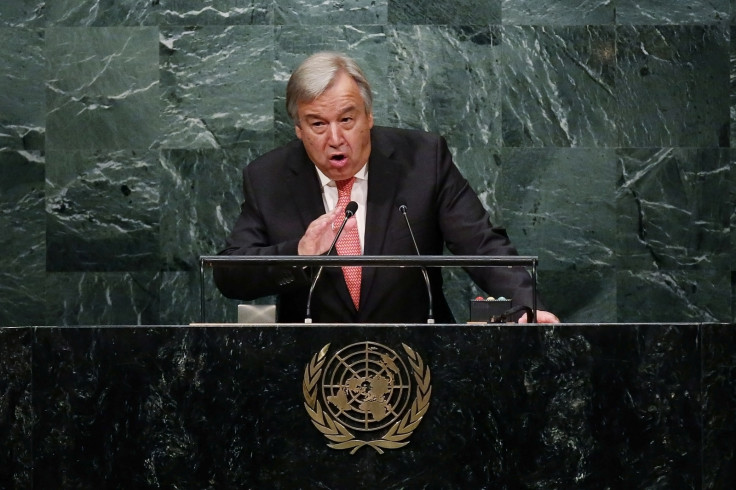New UN chief launches task force to reform peace-keeping body as risks of global conflict grow
António Guterres has vowed to make bureaucratic UN 'more nimble and effective'.

As respected figures discuss the possibility of a new world war, the new head of the United Nations has launched a task force aimed at reforming the international peacekeeping body.
António Guterres became the ninth UN secretary-general in January, replacing Ban Ki-Moon, and pledged to make the organisation more "nimble and effective" as he was sworn into office in December.
Now, two months into the job, the Portuguese statesman has called for a review into the 71-year-old body faced with a host of structural problems.
Eritrean national Tamrat Samuel will lead the review and must present his findings to Guterres by June this year.
"Inspired by the new concept of sustaining peace, it is time for us all to engage in a comprehensive reform of the UN strategy, operational set-up and structures for peace and security," Guterres said as he took office.
He himself highlighted several areas where reform was needed, including the UN's slow-moving and bureaucratic nature. The UN, for example, has 15 autonomous agencies and 11 semi-autonomous funds and programmes, which are not coordinated centrally.
The recent Ebola epidemic was in part blamed on the UN's difficulty in coordinating a rapid response.
"Looking at UN staff and budgetary rules and regulations, one might think some of them were designed to prevent, rather than enable, the effective delivery of our mandates," Guterres added.
"It benefits no one if it takes nine months to deploy a staff member to the field."
Guterres also pledged to do more for tackling sexual violence and exploitation, underlining the body's zero-tolerance approach.
However, his greatest challenge will be to prevent a new conflict on the global stage, with tension brewing in Ukraine and the South China Sea as just two examples.
In January, former Soviet leader and Nobel Prize winner Mikhail Gorbachev warned of the prospect of World War Three and called on the UN to adopt new resolutions to ease escalations.
He was particularly concerned about nuclear warfare and, in the same month, the Bulletin of Atomic Scientists moved the Doomsday Clock thirty seconds closer to midnight – the closest it has come to midnight since 1953.
Guterres will also have to tackle the prospect of unreliable funding in the future, with some countries falling behind on payments. Media reports suggest that US President Donald Trump may cut funding to the UN by 40%, which would cause an existential crisis for the organisation.
© Copyright IBTimes 2024. All rights reserved.






